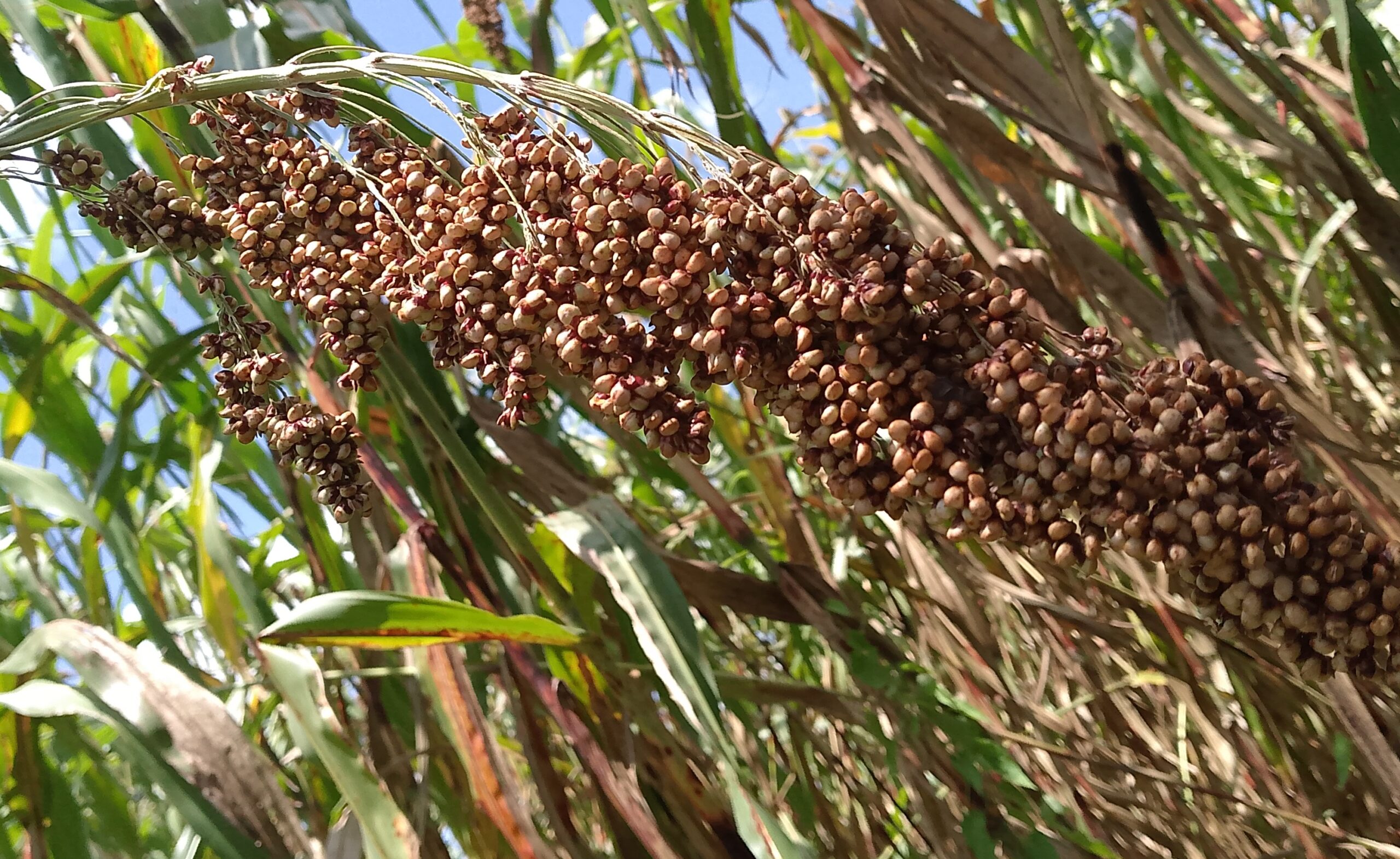
 Rapa FM Pader
Rapa FM Pader

 Rapa FM Pader
Rapa FM Pader
15 October 2024, 20:10
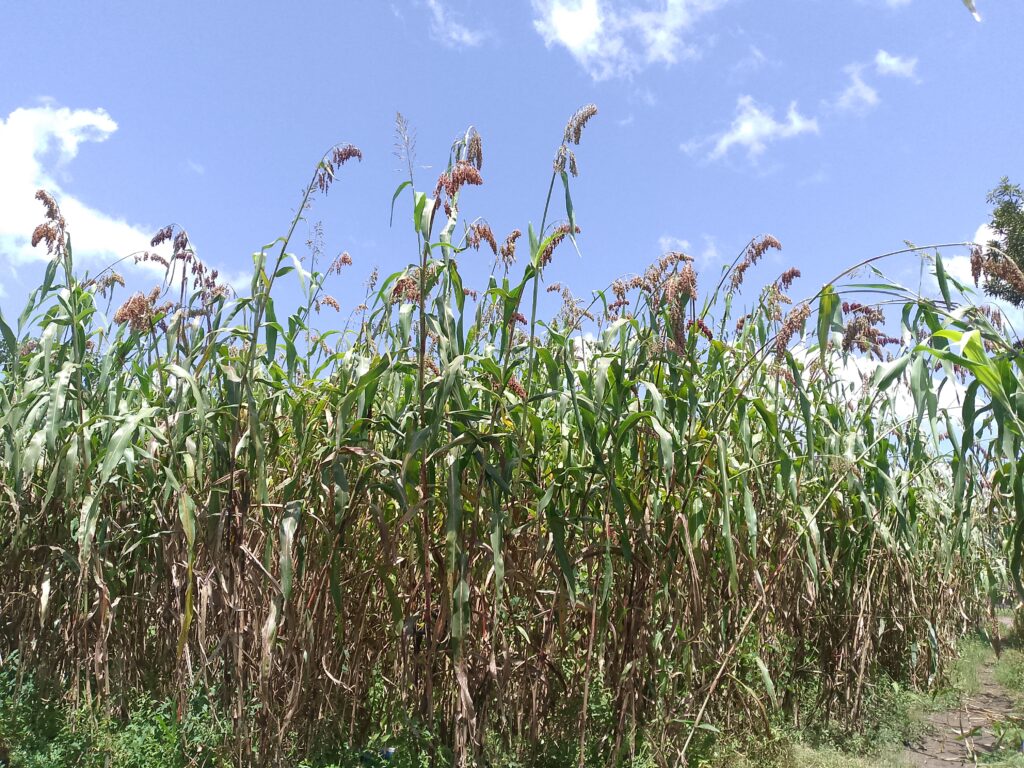
By Lakareber Kasline Gladys
In the heart of northern Uganda, where the earth meets the sky in a vivid tapestry of green and gold, the Acholi people have nurtured a rich agricultural legacy for generations. The fertile soils of Pader District, bursting with maize, beans, and millet, stand testament to a way of life deeply woven into their cultural fabric. Yet, as the winds of modernization sweep across this vibrant landscape, this delicate heritage hangs in the balance, threatened by a world that prioritizes efficiency over tradition. At the forefront of this struggle are the resilient farmers of Pader, champions of a cause that is as much about survival as it is about identity.
The Rise of Local Cooperatives
Amidst this backdrop, the Lalugi Rural Producer Cooperative Society Limited has emerged as a beacon of hope, founded by local farmers committed to safeguarding their agricultural traditions. This grassroots movement conducts workshops and demonstrations aimed at educating the youth about the significance of preserving their cultural practices and traditional methods of farming. By fostering a sense of community and collaboration, the cooperative aims to inspire the next generation to value their heritage and the lessons it imparts.
Walter Okeny, the Chairperson of the Lalugi Cooperative, embodies this mission. “We aim to keep our traditional practices alive,” he declares passionately. “If we don’t pass this knowledge on, it will be lost forever.” Okeny’s fervor for heirloom seeds, often overshadowed by improved counterparts, underscores the critical need for cultural continuity. He shares that many of these heirloom varieties are not only well-adapted to local conditions but also possess unique flavors and nutritional benefits that modern varieties lack.
“Our Harvest Festival is not just a celebration of crops; it’s a heartfelt tribute to the earth’s generous gifts,” Okeny reflects, his eyes lighting up as he recalls the pride of his first harvest, surrounded by family and community. This moment transcends mere agriculture; it symbolizes the interconnectedness of community, tradition, and identity, where every seed planted is a story of resilience, history, and hope for the future.
The Trials of Tradition
Yet, the vibrant community of Pader faces formidable challenges. Agriculture in Uganda is crucial, employing approximately 68% of the population and contributing around 24% to the GDP (World Bank, 2021). In Northern Uganda, staple crops like maize, produced at an estimated 1.8 million metric tons in 2020, according to Food and Agriculture Organization, 2020, alongside sorghum and millet, are vital for local diets. The Food and Agriculture Organization (FAO) warns that nearly one in three plant species used in agriculture is at risk of extinction due to industrial farming practices. This year, drought has cast a shadow over the fields, leading to diminished yields and increased food insecurity.
Despite these difficulties, the farmers have responded with unwavering resolve, sharing resources and uplifting one another through the harshest of trials. An elder’s words echo through the community: “Together, we will overcome,” a reminder of their strength in unity. This communal spirit becomes even more significant in times of hardship, as families work together to support those affected by crop failures or economic strain.
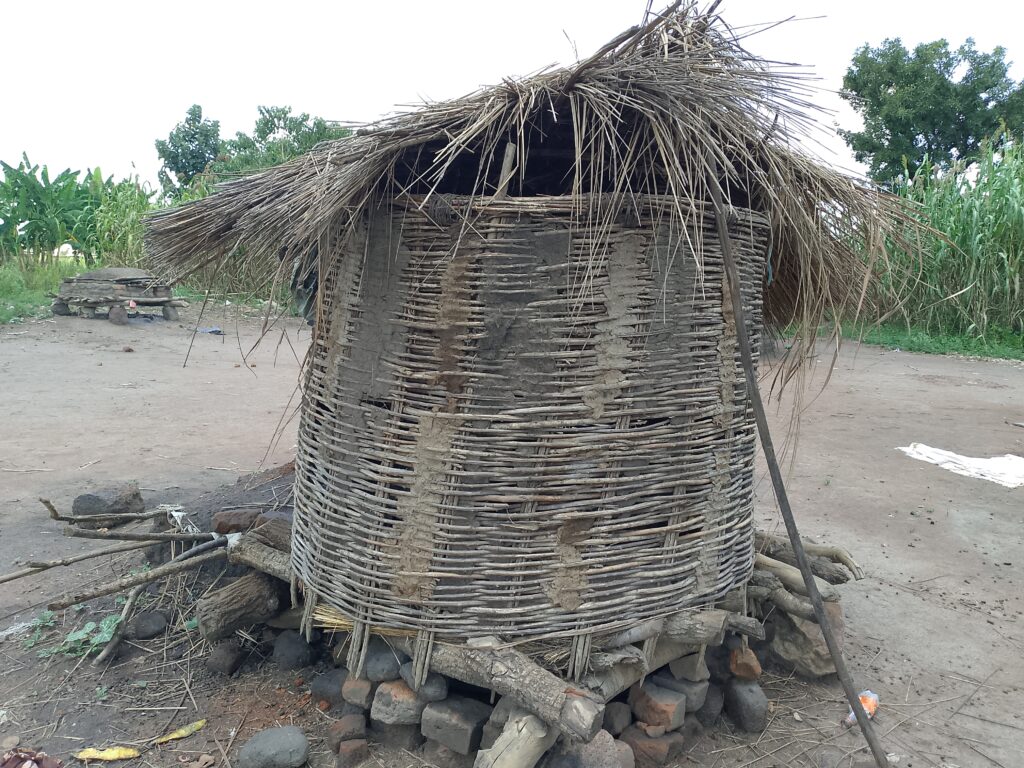
In the face of climate change and market pressures, the farmers of Pader consciously choose local seeds known for their resilience and health benefits. These indigenous seeds are nutritious, affordable, and can be replanted without loss of quality. For example, certain local bean varieties thrive under drought conditions, while traditional tomatoes possess medicinal properties that contribute to local health practices. The preservation of these seeds becomes not just an agricultural concern but a matter of cultural pride and identity.
The cooperative champions organic fertilizers and eco-friendly pest control, enriching the land through sustainable practices. Okeny notes, “Organic farming improves our health.” In a time of escalating food safety concerns, their commitment to sustainability reflects a profound understanding of their land’s needs. This approach not only supports the local ecosystem but also offers a solution to the pervasive issues of soil degradation and chemical dependency that plague modern farming methods.
A Cultural Tapestry at Risk
Despite their efforts, many young Acholi are lured by the allure of modern farming methods, drawn away from the rich tapestry of their ancestors’ practices. Hellen Aporo, an 80-year-old farmer and embodiment of traditional resilience, refuses to forsake her roots. “The seasons are no longer predictable, and we must adapt,” she laments, acknowledging the erosion of cultural rituals that once guaranteed bountiful harvests. The departure from these rituals signifies a broader loss of identity, as the younger generation becomes increasingly disconnected from the agricultural practices that define their community.
Each planting season in Pader begins with community preparation and blessing ceremonies. “We come together in prayer, asking our ancestors for protection and fertility,” Aporo shares, her voice steady with conviction. This unity fosters hope and imbues their agricultural endeavors with spiritual significance, a powerful reminder of their identity. These rituals are not merely formalities; they serve as essential touch points that bind the community, reinforcing their connection to the land and each other.
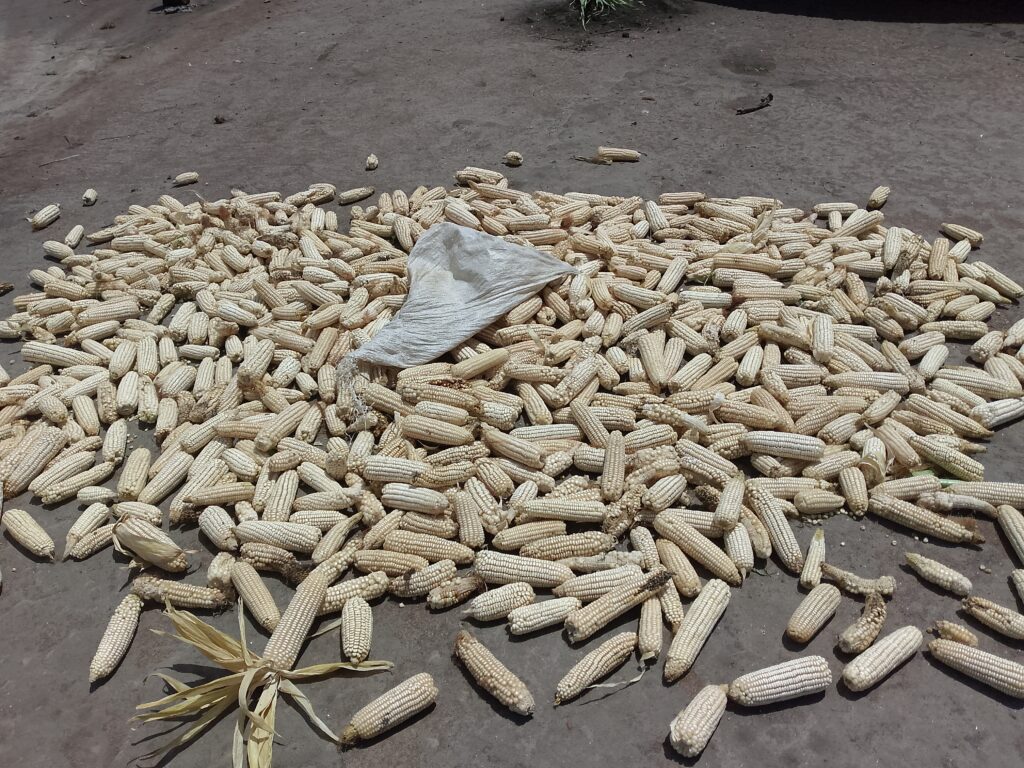
Navigating Market Pressures
However, traditional farmers face significant obstacles as modern farming methods gain market preference. Local farmer Nekosira Lawino voices her frustration: “High population growth is leading to land overuse, unlike in our time when soil fertility naturally gave us the best yields.” Many farmers cling to traditional granaries, eschewing modern polythene bags that compromise the quality of their harvests. The struggle to maintain their practices in the face of market demands poses an existential threat to their way of life.
Raymond Olyel, Managing Director of Lagara Investments Company Limited, highlights the bias against traditional seeds in the marketplace. “Improved seeds are often marketed more aggressively, leaving traditional varieties overlooked,” he observes. Olyel stresses the economic implications of losing these traditional practices, urging farmers to return to methods that have sustained them for generations. His call to action resonates deeply within the community, as he emphasizes the value of these seeds beyond mere monetary gain—they are symbols of heritage and survival.
He envisions a future where the community’s rich heritage attracts tourists interested in their unique farming methods. “By promoting traditional practices, we can create value-added products that enhance family incomes,” Olyel asserts, a hopeful glint in his eye. This vision offers a pathway to economic resilience, where the preservation of culture and tradition can coexist with modern economic opportunities.
Community and Government Support
Mr Seydou Opoka Adolatona, the Pader District Agricultural Officer, underscores the necessity of community support for local seed cooperatives. “Currently, there are three groups with an average of 100 people each in the district,” he notes, reflecting the growing commitment to preserving traditional practices. While these yields may fetch lower prices domestically, they are increasingly in demand internationally among advocates of sustainable agriculture. This shifting landscape presents a glimmer of hope for the farmers of Pader, encouraging them to continue their efforts despite the challenges they face.
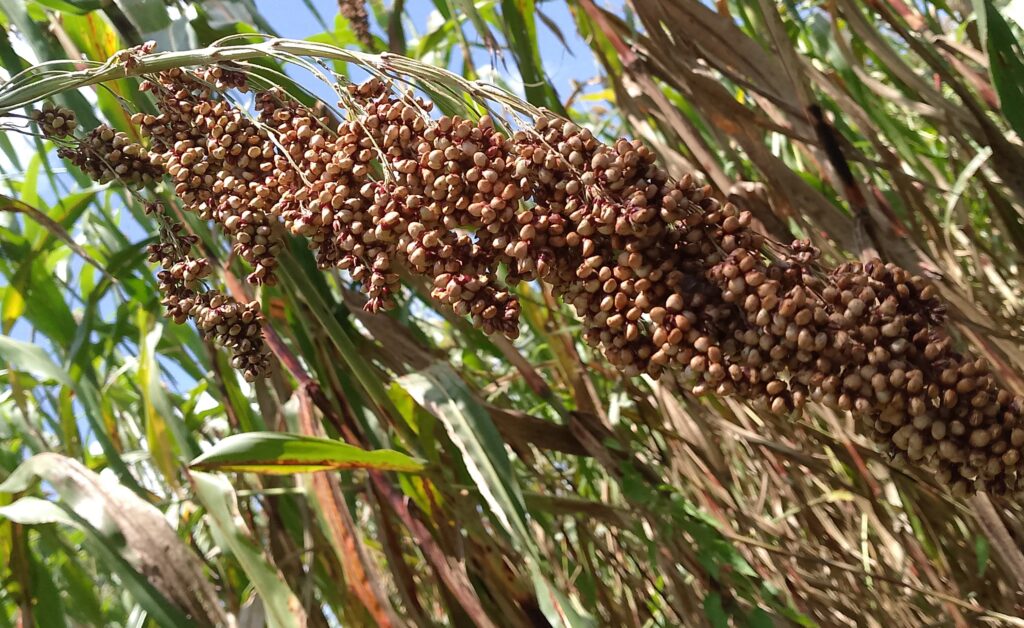
Opoka reflects on a historical shift toward improved seeds during the turmoil of camp life, where many accepted whatever NGOs provided without understanding the long-term consequences. The Pader District Production Department actively supports cooperatives specializing in traditional seeds, aiming to educate the younger generation about the importance of preserving their agricultural heritage. This educational aspect is crucial, as it empowers the youth to reclaim their identity and engage actively in the agricultural practices that have sustained their ancestors for generations.
Government initiatives, such as the Agricultural Cluster Development Project (ACDP), seek to transform the seed system, moving away from detrimental free seed distributions that have negatively impacted commercial sales. These initiatives aim to create a more sustainable agricultural framework that not only supports local farmers but also enhances food security in the region.
Sowing the Seeds of Tradition
The unsung heroes of Pader are not merely custodians of seeds; they are the champions of a sustainable future, intertwining cultural heritage with environmental stewardship. Through their efforts, they preserve not only their traditions but also the food security of their communities. As the Acholi people continue to cultivate their heritage, they sow the seeds of tradition for future generations, laying the groundwork for a resilient agricultural future.
The legacy of the Acholi people endures, thanks to those devoted to safeguarding their agricultural practices. By supporting local farmers, advocating for sustainable methods, and promoting indigenous knowledge, we can help ensure these traditions not only survive but thrive. This commitment to agricultural heritage serves as a model for communities worldwide, illustrating the profound connections between culture, agriculture, and sustainability.
Way forward
Let us take action today: visit local farmers’ markets, support community-led agricultural projects, and advocate for policies that protect small-scale farmers. Together, we can ensure the seeds of tradition continue to grow, nourishing both the land and the culture that calls it home.
In Pader’s fertile fields, the spirit of tradition lives on, nurtured by the hands of those who understand that a community’s true wealth lies in its roots. Historically, farming in Northern Uganda has been rooted in subsistence agriculture, with families primarily cultivating crops for their own consumption, including staples like millet, sorghum, maize, and cassava.
Despite the challenges faced, the farmers of Pader remain steadfast, embodying resilience and hope for a sustainable future. The road ahead may be fraught with difficulties, but their commitment to preserving their agricultural heritage stands as a testament to the enduring spirit of the Acholi people. By weaving together the threads of tradition, community, and sustainability, they pave the way for a future where their rich agricultural legacy continues to flourish.